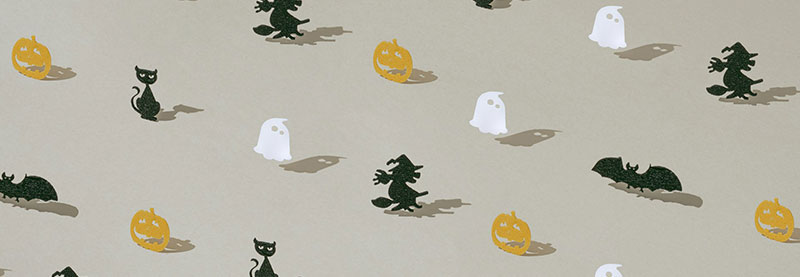Intellectual Property Insights from Fishman Stewart
Mini Article – Volume 24, Issue 18
Share on Social

Who Ya Gonna Call? Ghostbusters Win Infringement Lawsuit
By Kristyn Webb
Halloween is coming up at the end of this month, and we are getting into the spirit with another spooky copyright story.
Watching scary movies is a time-honored Halloween tradition, and one of the greatest movies to watch this time of year is “Ghostbusters” which premiered in 1984. One of the most recognized features of the “Ghostbusters” franchise is the iconic ghost logo. Shortly after the film’s release, Harvey Cartoons, the makers of “Casper the Friendly Ghost” sued Columbia Pictures for copyright and trademark infringement, claiming the “Ghostbusters” logo was a spectral copy of Harvey’s ghostly character “Fatso.”
“Fatso” first appeared in a series of “Casper” comic books published in the early 1950’s by Paramount Pictures. At that time, under US copyright law, registrations had to be renewed, or the copyrighted works would fall into the public domain. The law was changed in 1976, well before the lawsuit was filed, but well after “Fatso” had lapsed into the public domain. Thus, Columbia’s “Ghostbusters” logo was clear of copyright issues since any similarities were with a character no longer protected under copyright.
Harvey also claimed that Columbia’s logo was too similar to its registered trademark, which could confuse consumers. Harvey’s trademark depicted three ghost heads, while Columbia’s logo featured a single ghost with a different design. The court found there was no significant chance that moviegoers would expect to see a “Casper” cartoon when purchasing tickets to see the “Ghostbusters” film.
The court gave Columbia’s “Ghostbusters” logo a clean bill of health, ruling it didn’t infringe on Harvey’s copyright or trademark rights.
Watching ghosts battle it out in court is always entertaining!
Kristyn Webb is the Group Leader of Fishman Stewart’s Copyright Practice Group, and holds a Master’s Degree in Copyright Law from King’s College London.


Published October 18th, 2024
Related Content from Fishman Stewart
By 1930, efforts began in New York to replace Mother's Day with Parent's Day because men were more than just breadwinners. Those efforts didn't catch on, probably because in that era, women often spent more time in the home.
In February, Nike and Skims announced that they will be working together on a new brand, NikeSkims. The co-brand will create a new line of training apparel, footwear, and accessories specifically designed to meet the unique needs of women athletes.
Generally, federal courts have exclusive jurisdiction over copyright cases, and often, this presents an insurmountable paywall for individual artists and small businesses to vindicate their rights, especially where the value of the individual copyrighted works are relatively low.
Dedicated to raising public awareness about the importance of encouraging innovation and creativity throughout the world, the World Intellectual Property Organization (WIPO) annually observes World Intellectual Property Day on April 26 to showcase the role that patents, trademarks, industrial designs, copyrights and trade secrets play in our everyday lives.
Hold onto your foam fingers, sports fans – college sports just got a whole lot more interesting! The latest updates to Name, Image, and Likeness (NIL) rules are making student-athletes bigger than ever, and it’s not just about the game anymore.
Did a federal court in Louisiana recently decide that US copyrights are global rights? It seems so.
One of his most famous songs, “Lose Yourself” was recently at the center of a lawsuit. In 2019, Eminem’s publishing company Eight Mile Style sued Spotify claiming that Spotify streamed a number of its musical compositions without proper licenses.
One of the most common challenges is whether AI should be free to train on data that is protected by copyright and owned by third parties without first obtaining permission.
The U.S. Copyright Office (USCO) recently published its latest report on AI and “copyrightability.” In short, the USCO considers only some AI-generated works to be sufficiently creative as to deserve copyright protection, and thus, registration.
Back in the 1940’s assignments by independent contractors could be permanent and irrevocable. Things changed in 1976, when Congress overhauled the Copyright Act.
IDENTIFYING, SECURING AND ADVANCING CREATIVITY®













